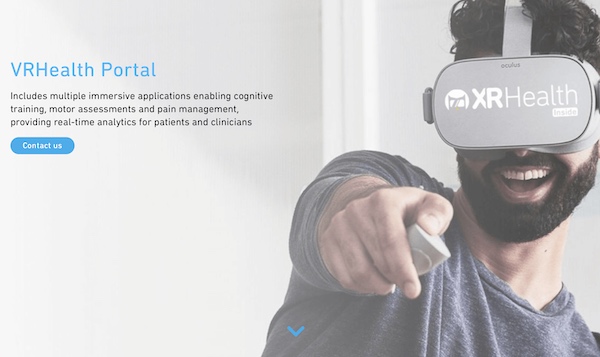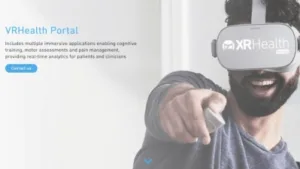When we talk about augmented and virtual reality applications we always agree that healthcare is one of the segments where the AR / VR advantages are beyond any discussion of cost effectiveness. From medical training to treating a variety of illnesses and syndromes the stories mostly praise the effects AR / VR has on patients.

Clinical trials have shown positive effects in a wide range of patients and since there are no drugs involved, FDA approval is much easier compared to costly and lengthy drug testing. In a drug-related sense, AR / VR treatments could be classified as placebos as any resulting effect comes from within the patient.
DocWire News, an online medical news outlet mentions the top four VR breakthroughs in Medicine in an article from June of this year. They give the following applications the top nod of approval. There is
- planning surgeries at St. Joseph’s Children Hospital,
- early detection of Alzheimer’s disease,
- helping Parkinson’s patients to walk, and
- reshaping the surgical training process.
You can read the more detailed article on their website. These are only the top four of many medical applications we have reported on.
From a business standpoint, medical applications are a good target for app developers. In the medical field, the cost of drug development is often measured in billions of dollars and developing an app may cost much less than even the first stage of any drug development. After the first success stories were published, many medical research centers saw an opportunity to develop meaningful VR treatment alternatives at a fraction of the cost of new drugs. In addition it turns out that any newly developed VR treatment can be deployed quickly and efficiently. From a hardware perspective the medical field is very attractive for high end systems. However, sales numbers will not reach the high expectations based on a broader consumer adoption.
Recently Sheba Medical Center and XRHealth issued a press release announcing a cooperation between Sheba Medical Center and XRHealth (formerly VR Health) to establish the first VR-based hospital based on the XRHealth technology. Let us take a short look at the players and the actual scope of this announcement.
Sheba Medical Center is an Israel-based hospital that is not only the biggest hospital in the Middle East (treating 1.5 million outpatients each year) but is also ranked by Newsweek (March 2019) as one of the top 10 hospitals in the world. This ranking is based on being at the forefront of new technology and medical advancements.
XRHealth is a VR developer in the medical field with headquarters in the USA and Israel. They develop medical applications combined with data analytics for hospitals. They are the first company to develop FDA / CE registered medical applications focusing on motor, cognitive, physical and psychological abilities as well as pain assessment and treatment. While the first applications were all based on VR headsets they are now also working on AR solutions as well.
 XRHealth AR/VR Medical Applications
XRHealth AR/VR Medical Applications
Most of the of apps are in the form of games to improve certain aspect of the patients’ abilities (physically or psychologically) or relaxation environments to help with stress or pain. Most of these VR applications work with the Oculus Go and Quest, while the the AR application seems to be designed for the Magic Leap One. Just check out their website for more information on the different applications they offer.
The press release says that Sheba Medical Center and XRHealth are cooperating to create the first fully VR-based hospital in the world. This means a plan to use the XRHealth technology in all departments of the hospital. While this sounds like a fully fledged adoption of VR everywhere, some research on the organization of Sheba Medical Center shows that they have established ARC (accelerate, redesign and collaborate) Centers to further new and advanced medical technologies.
It seems that in a first step they will use VR technology within these ARC centers as much as possible. The hospital principles point at applications in rehabilitation and other applications throughout the hospital where the technology will be helpful. While we are still far away from the virtual hospital (and I am not even sure if a virtual hospital is a good thing), this is the first time a major medical center has given VR a chance to prove the technology in day to day operations.
As I pointed out above, the medical field is an area where VR has shown a lot of promise. This announcement shows that this has been recognized by parts of the medical community and I hope that shortcomings in the performance of today’s VR and AR headsets will not cause a failure in this major field test Sheba Medical Center is promising. – NH

